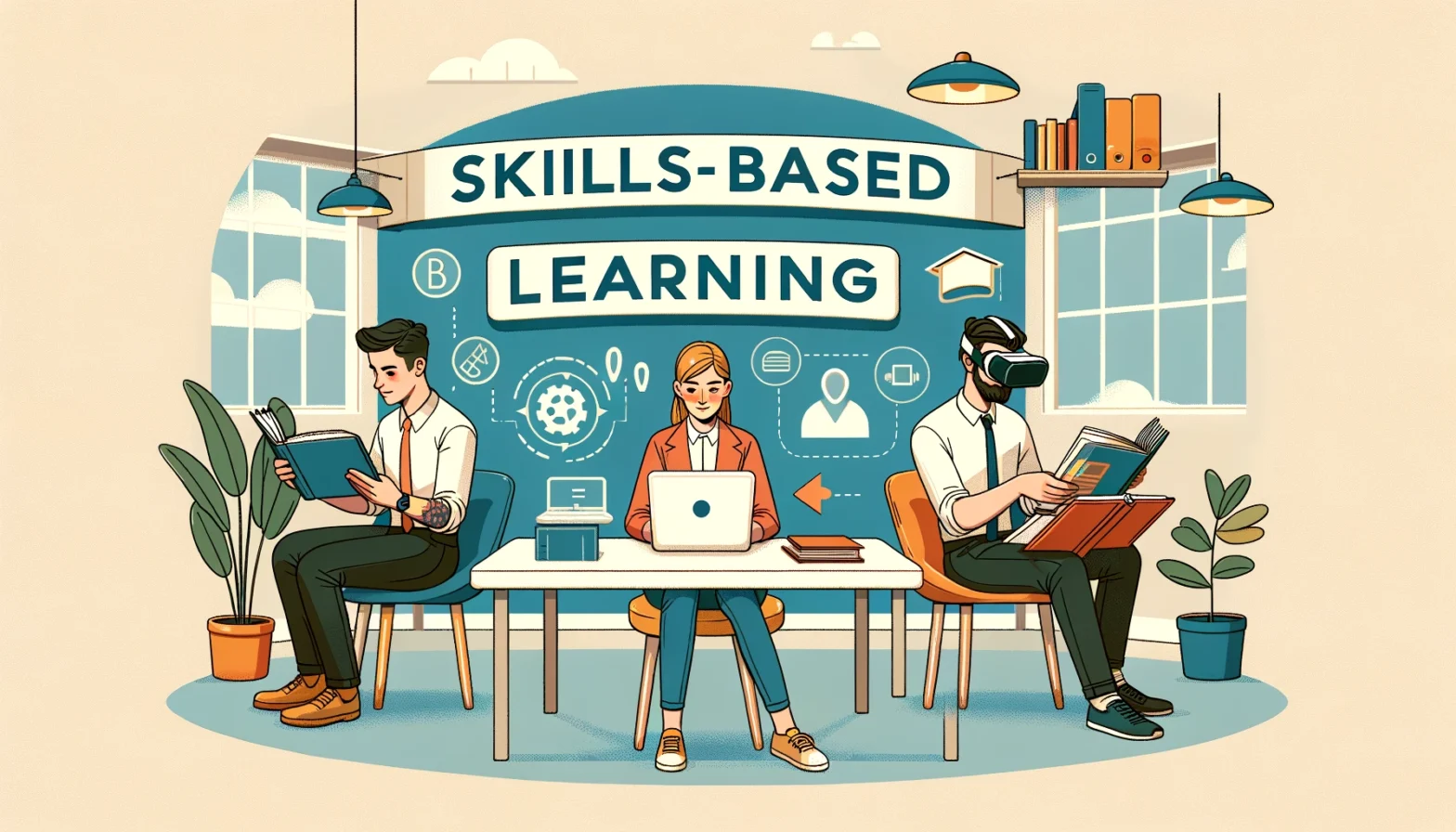Bridging the skills gap: the role of upskilling and reskilling in modern business
- 4 Min Read
As digital transformation accelerates, businesses must adopt a skills-based approach to learning, leveraging AI and tech platforms to identify and bridge skills gaps, thereby boosting employee retention and business performance.
- Author: HRD Connect
- Date published: Mar 5, 2024
- Categories

Businesses are changing faster than ever, making continuous learning not merely a nice perk but an absolute necessity. With the advent of digital transformation and the increasing reliance on technology, employees must continually update their skills to stay relevant. Notably, the UK faces a skills crisis, with reports indicating a scarcity of the skills necessary for modern work. Left unaddressed, this shortage could cost the UK economy up to 120 billion by 2030.
Critical skills required in today’s workplace encompass digital literacy, data literacy, and critical thinking. However, traditional education often falls short in adequately developing these skills. Herein lies the pivotal role of workplaces in preparing employees for the demands of the modern workplace. The challenge lies in nurturing talent and providing access to tools that facilitate the acquisition of requisite skills.
A Skills-Based Approach for Upskilling and Reskilling Initiatives
To tackle the skills crisis, employers must first grasp the extent of the skills gap within their workforce. Conducting staff assessments yields comprehensive data sets of test results, aiding in the identification of existing skills strengths and pinpointing areas for improvement. Armed with this vital data, employers can deliver relevant, engaging on-the-job training, ensuring that their workforce possesses the skills necessary for success.
A skills-based approach to learning is paramount in this regard. This strategy focuses on cultivating the skills essential for individual and organizational growth, simplifying the process of upskilling and reskilling employees in areas crucial to business operations.
Prior to implementing a skills-based learning strategy, organizations need to develop a skills ontology. This involves using internal job descriptions and other data to understand the current skill levels across the business and identify what is missing. Here, AI can play a pivotal role in mapping existing skills and identifying evolving needs, ensuring ongoing relevance.
Once the requisite skills are identified, organizations should proceed with implementing training and upskilling initiatives. Leveraging a tech platform that enables the tagging of learning content with specific skills facilitates the identification, creation, and delivery of content tailored to address skills gaps effectively.
Effective upskilling and reskilling programs boost business performance
Effective upskilling and reskilling programs not only mitigate the skills crisis but also exert a significant influence on employee retention and business performance. Substantial evidence suggests that employees prefer employers committed to their skill development.
Many organizations are developing internal certification programs incentivizing employees to acquire valuable skills. Providing certifications and assessments not only enhances an organization’s competitive edge in recruitment but also empowers employees to contribute more effectively.
Moreover, skills-based learning can revolutionize hiring practices. By adopting a skills-based approach to learning, companies can recruit candidates based on potential and provide tailored training to foster their development into top-tier employees. Through strategic upskilling aligned with organizational growth strategies, companies expand the pool of talent available to them.
Furthermore, the digitalization of industries means workers who don’t upskill and learn new skills will be left behind. Having a skills-based learning approach means that HR teams will be regularly on the lookout for new technologies that will make a difference to an organization and update their skills ontologies to implement them in the right way. This can help to make companies more competitive and successful in the long term.
The importance of upskilling and reskilling in the workplace cannot be overstated. By implementing successful initiatives, organizations can not only address the skills crisis but also improve employee retention and enhance business performance. The future success of any organization relies on how well it addresses the skills shortage and equips its workforce with the skills they need to face the future.









